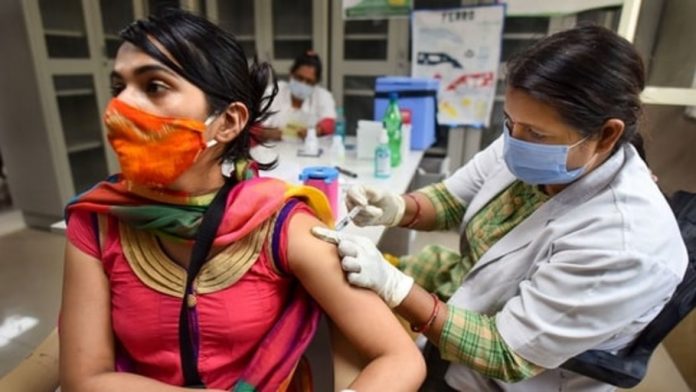The team found that the longer the time between vaccination and infection, the uniformly stronger was the immune response; reason may be related to body’s immune response maturing over time

A new study has revealed that increased time between vaccination and infection seems to strengthen immunity from COVID-19.
The study was carried out by researchers from Oregon Health and Science University (OHSU), US. The team measured the antibody response in blood samples for a group of people who gained so-called “hybrid immunity” through two means. They were either vaccinated and then had a breakthrough infection, or they got vaccinated after contracting COVID-19.
The researchers measured the immune response in the blood samples of 96 generally healthy OHSU employees. They found that the longer the time between vaccination and infection, the uniformly stronger was the immune response. The longest interval measured was 404 days.
Also read: First made-in-India intranasal COVID vaccine launched
The scientists’ findings suggest that vaccine boosters should be spaced no more frequently than a year apart, at least among healthy people. The findings have been published in the Journal for Clinical Investigation Insight.
From pandemic to endemic
The findings carry implications for vaccine recommendations as the pandemic transitions to an endemic state, the study said.
“Longer intervals between natural infection and vaccination appear to strengthen immune response for otherwise healthy people,” said co-senior author Fikadu Tafesse, associate professor in the OHSU School of Medicine.
The new research is the latest in a series of laboratory discoveries by OHSU scientists revealing a pattern of strengthened immune response through hybrid immunity. Their findings suggest that the magnitude, potency, and breadth of hybrid immune response increased with a longer gap between exposure to the virus, whether through vaccination or natural infection.
Also read: Report confirms fears: COVID took its toll on children’s reading, math skills
This likely is related to the body’s immune response maturing over time, said co-senior author Marcel Curlin, associate professor of medicine (infectious diseases) in the OHSU School of Medicine.
“The immune system is learning. If you’re going to amplify a response, what this study tells us is that you might want to boost that response after a longer period of learning rather than early after exposure,” said Curlin.
Frequent boosters for vulnerable people
Furthermore, the research team found that it did not matter whether someone developed hybrid immunity by getting vaccinated after contracting COVID-19 or after a breakthrough infection following vaccination. Both groups developed an equally potent immune response.
The findings suggest long-lasting potency of so-called “memory cells,” the B cells that recognize an invading virus and generate protein antibodies to neutralize the virus and its many variants.
The authors wrote that an ever-growing pool of people who have contracted the SARS-CoV-2 virus stand to benefit from vaccination, even if they have delayed it until now.
Also read: Amid COVID scare, active cases fall in Indian states – some log zero infections
Relying on natural infection alone is a bad idea, “given the risks of severe illness, long-term complications, and death,” the authors wrote. They said the findings are the latest to point toward the virus evolving to an endemic state.
“Our results point to a future where inevitable vaccine breakthrough infections would be expected to help build a reservoir of population-level immunity that can help blunt future waves and reduce the opportunity for further viral evolution,” they wrote.
The researchers cautioned that the immune response was measured in relatively healthy people, and boosters may be advisable on a more frequent basis among vulnerable people who are older or are immunocompromised.
(With agency inputs)










![Best Weight Loss Supplements [2022-23] New Reports!](https://technologytangle.com/wp-content/uploads/2022/12/p1-1170962-1670840878.png)




